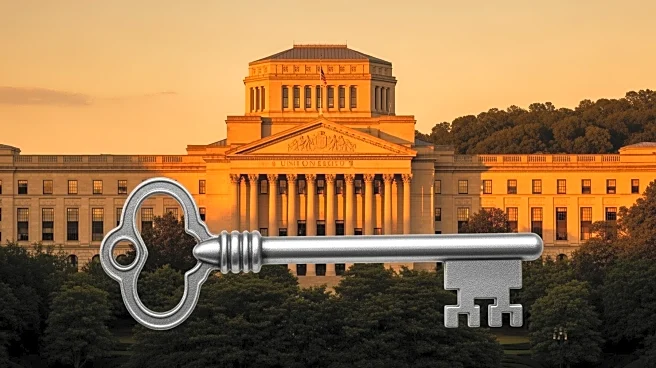What's Happening?
The University of Southern California (USC) has declined the Trump administration's offer for preferential federal funding in exchange for adopting more conservative policies. The administration's proposal,
outlined in a memo titled 'Compact for Academic Excellence in Higher Education,' included commitments to standardized testing and foreign student enrollment. USC's interim president, Beong-Soo Kim, rejected the offer, citing concerns that it would undermine academic freedom and excellence. USC joins other institutions, such as the University of Pennsylvania and MIT, in rejecting similar offers.
Why It's Important?
USC's decision reflects broader concerns within higher education about maintaining academic freedom and resisting political influence. The rejection of the funding proposal highlights the tension between federal funding and institutional autonomy. USC's stance may influence other universities facing similar offers, reinforcing the importance of preserving academic values. The decision also comes at a time when USC is dealing with financial challenges, including a significant budget gap and recent cost-cutting measures.
Beyond the Headlines
The rejection of the Trump administration's proposal underscores the ongoing debate over the role of politics in higher education. It raises questions about the ethical implications of tying funding to policy changes and the potential impact on academic integrity. USC's decision may encourage other institutions to prioritize academic freedom over financial incentives, shaping the future of higher education policy.









